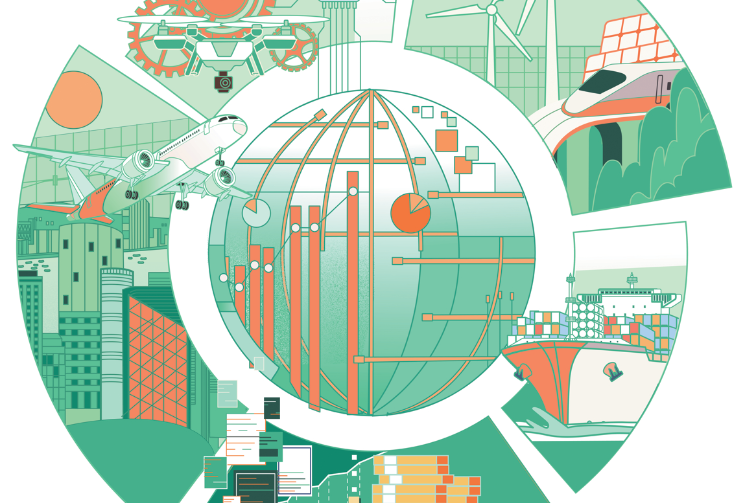Xi's speech shows path for China-Bangladesh climate cooperation


Though Bangladesh emits less than 0.35 percent of global greenhouse gases, it is one of the most vulnerable countries to the impacts of climate change.
Bangladeh is one of the vulnerable countries affected by climate change. Contributing factors include its nature as a low-lying and flat coastal plain, which makes the country more susceptible to cyclones and flooding from major rivers.
The geographical location of Bangladesh is also another important factor, as the country receives direct radiation throughout the year and maintains relatively high temperature due to its location in the Tropic of Cancer. Density of population and lack of resources are also significant.
According to the Internal Displacement Monitoring Centre, global warming and local high temperatures have put one-third of its population at risk of displacement. Over the last decade, about 700,000 Bangladeshis were displaced on average each year by natural disasters. The World Bank said the number of displaced people in Bangladesh could reach 13.3 million by 2050.
Bangladesh incurred losses linked to the impacts of climate change estimated annually to average 1.8 percent of GDP between 1990 and 2008. Rising sea levels and coastal erosion could lead to a loss of 17 percent of land surface and 30 percent of food production by 2050, according to experts from the Intergovernmental Panel on Climate Change, a body of the United Nations.
However, Bangladesh has undertaken many anticipatory and timely measures for adaptation and mitigation of the impacts of climate change. To top it all off, the country has made the protection and improvement of the environment and biodiversity one of the fundamental principles of state policy. In doing so, Bangladesh inserted Article 18A in its constitution by the Constitution (Fifteenth Amendment) Act of 2011. The government also renamed the Ministry of Environment and Forest as the Ministry of Environment, Forest and Climate Change in 2018.
With the adoption of various initiatives, Bangladesh has been a role model in climate change adaptation for the rest of the world. But the South Asian country has still a long way to go in this regard. Bangladesh will have to take more measures to get rid of the negative impacts of global warming as it dreams of becoming a developed nation by 2041. Because poverty eradication is correlated to development, fighting climate change is a must for shaking off poverty.
Against this backdrop, Chinese President Xi Jinping delivered an important keynote speech online at the Leaders' Summit on Climate at the invitation of his US counterpart Joe Biden. The speech has been welcomed and admired by global leaders and concerned experts from across the world as a pragmatic and timely guideline of stepping up international cooperation on climate change.
I think the speech is a proper outline of deepening bilateral cooperation between Bangladesh and China on climate change as well. Xi said: “We must be committed to multilateralism and need to uphold the UN-centered international system, comply with the objectives and principles laid out in the UN Framework Convention on Climate Change and its Paris Agreement, and strive to deliver the 2030 Agenda for Sustainable Development.”
Xi also emphasized the need for taking stronger action, strengthening partnerships and cooperation, learning from each other and making common progress in the new journey toward global carbon neutrality.
In this process, he said, every country must join hands, not point fingers at each other, maintain continuity and honor commitments. China looks forward to working with the international community to jointly advance global environmental governance.
These statements from the Chinese president have expressed the readiness of China to forge ahead in cooperation with Bangladesh on climate change under both international and bilateral frameworks. I think it is high time for both countries to take necessary steps in this sector.
Bangladesh can greatly benefit from China on climate change. The East Asian nation has long experience of simultaneously mitigating adverse impacts of climate change and achieving tremendous development. It has introduced the concept of the “Ecological Civilization”.
The concept has brought about improvements in pollution reduction, low-carbon emission, rural vitalization, science, technology, innovation and green development in China. It has defined new relationships between people and nature that permits living well within the environmental bounds of the planet.
The ecological civilization was written into the Chinese constitution in 2018. It is a unique version of sustainable development. It is a combination of the three core dimensions of the concept of sustainable development – environmental, economic, and social.
I firmly believe as an important member of the China-proposed Belt and Road Initiative, Bangladesh has many lessons to take from China's experiences building an ecological civilization.
Finally, Bangladesh can also benefit from Chinese modern technologies, resources and investments to make its vibrant infrastructure sector environmentally friendly, which will help the country ensure sustainable development while mitigating adverse impacts of climate change.
Md Enamul Hassan is a news editor and broadcast journalist at China Media Group in Beijing.
The opinions expressed here are those of the writer and do not represent the views of China Daily and China Daily website.
If you have a specific expertise and would like to contribute to China Daily, please contact us at opinion@chinadaily.com.cn , and comment@chinadaily.com.cn


































